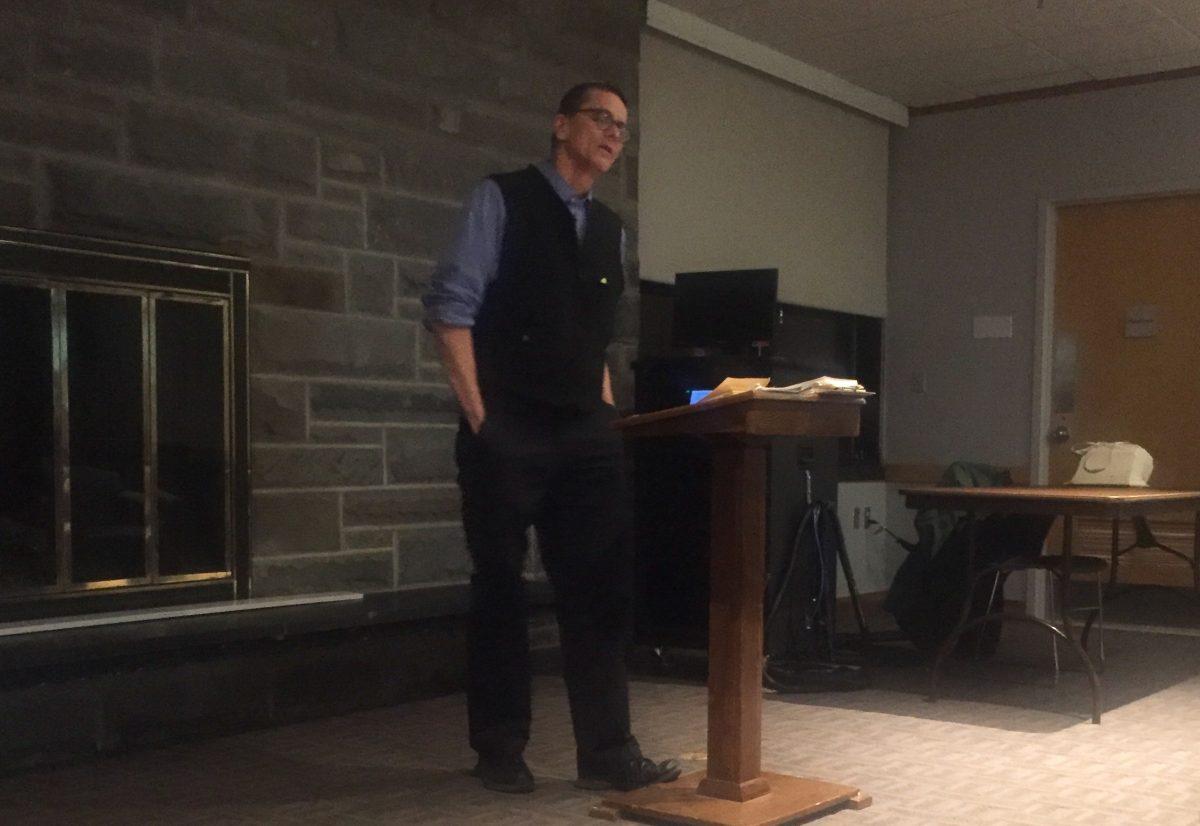Over the years, “feminism” has become a blanket term for a movement that has historically held varying opinions as to what the cause should represent.
Robert Jensen, a professor in the School of Journalism at the University of Texas at Austin, spoke about his latest book concerning feminist theory at Ithaca College on Feb. 16 and Buffalo Street Books in Ithaca, N.Y. on Feb. 18. Jensen recently published The End of the Patriarchy: Radical Feminism For Men, which aims to distinguish the difference between radical feminism and liberal feminism, and how radical feminism has shaped his own views.
Carla Golden, a professor and the Women’s and Gender Studies Coordinator at Ithaca College, who organized Jensen’s appearance, said the traditional distinguishing features of varying feminist movements have been lost in recent years.
“We’ve gotten to a point where people just call themselves feminists without having any clue what that means,” she said. “This book is an attempt to bring people back to the theory of feminism that was so impactful to him, which was radical feminism.”
Radical feminism, according to Jensen, aims to challenge the patriarchal system that most of the world lives in, rather than seeking to improve the status of women within the current system, which is the main ideology of liberal feminism.
“Liberal feminism says ‘here’s the system, let’s work on ways to expand women’s rights within it,’” Jensen said. “Radical feminism tends to talk more about structures. For example, if a woman chooses to perform in pornography, liberal feminism says ‘okay that’s a woman’s choice.’ Radical feminism steps back and says, ‘why is there a porn industry that routinely presents objectified women’s bodies for sexual pleasure for men through media?’”
In his book, Jensen presents three main issues: the idea that rape culture doesn’t exist; the sexual exploitation industry of pornography and prostitution; and the transgender movement.

“This book is my attempt, in plain language, to report on what I have learned with nearly 30 years of engagement with both feminism as an intellectual enterprise, and as a political enterprise out in the world,” Jensen said.
In order to explain radical feminism’s beliefs toward the transgender movement, he explained the difference between gender and sex. A female is born with the ability to produce eggs, while a male’s body is designed to produce sperm, which explains sex differences.
“Gender from the 1970’s on was a term used in feminism to talk about the cultural meaning of the biological differences. So you should have long hair and you should have short hair. Is that dictated by sex differences? No. Those are gender differences,” he said.
Jensen also said that the transgender movement does not make sense to everybody, including some members of the radical feminist movement.
“Radical feminism accepts the biological reality of male and female. So when the transgender movement says ‘I am biologically male, but I am actually female,’ the radical feminist movement essentially says ‘I don’t know what that means,’” he said.
Jensen said that the radical feminist critique says opposing the patriarchy is a better solution than the current transgender ideology. Radical feminists believe by undergoing a sex change, transgender people are continuing patriarchal standards already set in place by society. Instead, Jensen argues that transgender people should critique gender norms, rather than change their sex to better fit into the current system.
By opposing the current patriarchal system, Jensen said the transgender movement can better advance the movement to erase gender norms.
When discussing pornography and the “sexual exploitation industry” in the book, Jensen said men’s reactions to the argument against pornography used to mainly be hostile. Jensen said that in his book, he chose to write about many of the controversial topics up for debate, including men’s exploitation of women.
“Men have a very complex relationship with pornography. When I first started doing this, there was both a celebration of the use of porn, but a certain amount of shame, sometimes guilt over using it. It was complicated,” Jensen said.
The latter two of Jensen’s claims has sparked controversy among some readers. Golden said some of her students disagreed with Jensen’s arguments about the pornography industry and the radical feminist critique of the transgender movement.
“Some of them were very annoyed,” Golden said. “It’s a difficult argument for the students in my class because we’re so conditioned to understand and be compassionate.”

Junior Colby D’Onofrio said that before the talk, she had never heard the term “radical feminism.”
D’Onofrio also said pornography is not always optional for women.
“Women are abused and dominated in a sexual way. That is how we view women to be abused and dominated outside of porn. That ties into our patriarchal norms,” she said.
Jensen said the radical feminist movement lost momentum in recent years because many activists stayed complacent in the current system.
“I just think we’re at a point where the culture faced a critique of patriarchy and stepped away from it because it’s simply too difficult for most people,” Jensen said.






